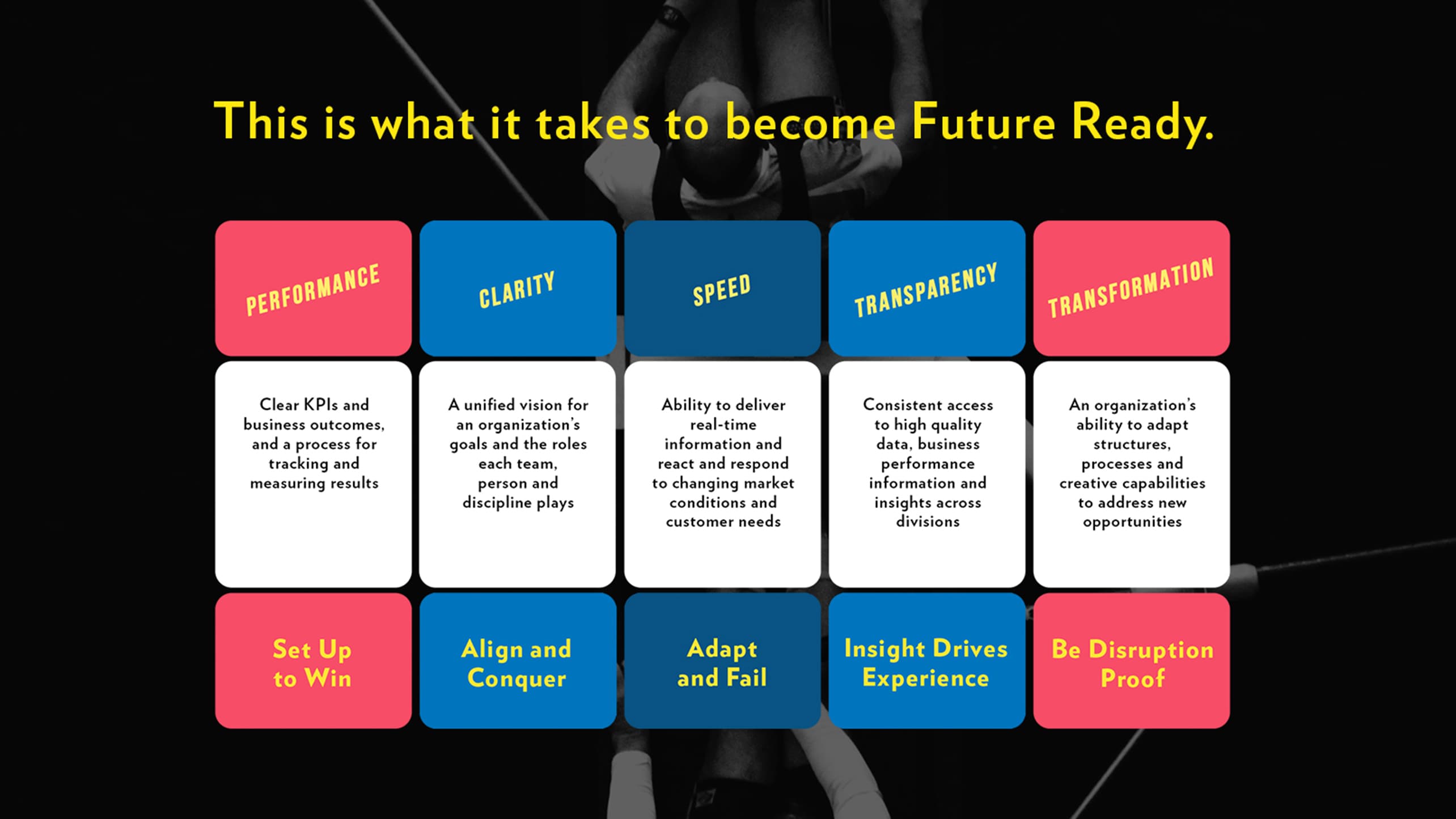
Are you future ready?
Companies need to stop reacting to change and start inciting it
The most successful companies today welcome change.
They view it as a catalyst not an obstacle. They see the future as an opportunity not a challenge. They don’t just react to change – they incite it. And they win because disruptive thinking always wins.
To compete with them, marketers must commit to transformation across their entire organisation. This starts with asking the hard questions and listening to the answers.

A study of 250 global senior business decision makers (BDMs) by WPP’s digital agency network Wunderman reveals that despite having access to more innovative marketing tools and systems than ever, 70% of companies feel limited by short-term expectations.
In partnership with fellow WPP company Penn Schoen Berland, Wunderman unearthed an extensive gap between the ability of companies to recognise the challenges of digital transformation and the ability of them to implement and benefit from technological and creative investments in their sales and marketing.
68% of global business decision-makers are still struggling to bring their data, creative and technology together
Other key findings from the survey include:
- While 99% of global BDMs believe data is critical to achieve success, 62% are unable to turn data into insights or action.
- 73% say their companies are siloed and 89% of those believe these silos impact their ability to deliver cohesive messaging.
- 59% of executives surveyed remain dissatisfied with their current marketing investments.
Wunderman conclude that in order to become “future-ready,” businesses need to embrace a long-term view and not constrain themselves to short-term prospects. They identify five key steps for companies in a future struggle: performance, clarity, speed, transparency, and transformation.

published on
20 July 2018
Category
More in Technology & data

How to build your brand in-game
A new research report from WPP and SuperAwesome

WPP puts itself at the heart of collaborative 3D worlds
Pixar's 3D animation file format – USD – is the invisible building block of our digital 3D future.

A clarion call for AI, accessibility & advertising
Innovating at the intersection of AI, accessibility, and advertising

